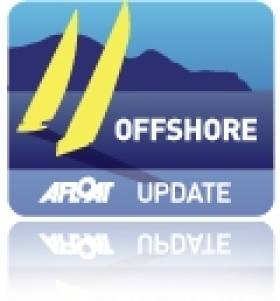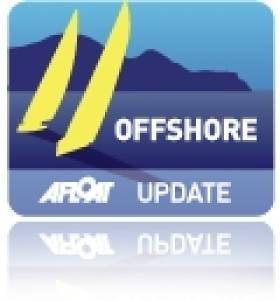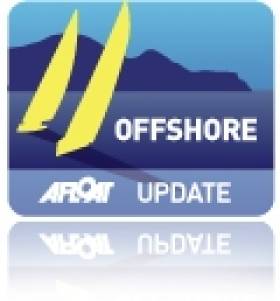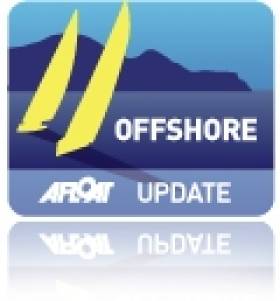Displaying items by tag: missing
#CheekiRafiki - US Coast Guard officials say they have identified the upturned hull of the Cheeki Rafiki, whose crew have been missing for more than a week.
But according to BBC News, they also confirmed that the vessel's liferaft was still on board - dashing any hopes that its crew of four British sailors may still be alive.
Contact with the 40ft yacht was lost last Friday 16 May after it reported taking on water and altered its transatlantic course while returning to Britain from a regatta in Antigua.
US and Canadian search teams covered a 4,000 square mile section of the mid Atlantic but halted their initial search after two days with no signs of its four-man crew - James Male, Andrew Bridge, Steve Warren and Paul Goslin - who are all experienced offshore sailors.
However, earlier this week the search resumed after a request from the British government amid pressure from the families of the missing yachtsmen and their supporters, who collected hundreds of thousands of signatures in an online petition.
The capsized yacht was found yesterday (Friday 23 May) by the US Navy in the same area where the crew had originally reported difficulties. Search operations have now ended.
BBC News has more on the story HERE.
Search Resumes For Missing British Yachtsmen
#Offshore - The US Coast Guard has resumed the search for four British yachtsmen missing in the mid Atlantic after a request from Westminster, BBC News reports.
Contact was lost last Friday 16 May with Paul Goslin, Steve Warren, James Male and skipper Andrew Bridge of the Cheeky Rafiki a day after the 40ft yacht got into difficulties when returning to the UK from a regatta in Antigua.
Two days later, a major search operation covering 4,000 square miles of the Atlantic was suspended with no sign of the yacht's crew.
It's not been confirmed what specifically prompted the search for the four men to resume - but the move comes a day after an online petition calling on US authorities to restart the search collected more than 200,000 signatures.
The families of the missing sailors maintain their insistence that the men may well have survived the rough ocean conditions in their liferaft, despite the US Coast Guard estimating a survival time of just 20 hours.
Veteran ocean-crossers Sir Richard Branson and Tony Bullimore have also backed the families' belief that the conditions were potentially survivable.
However, experts suggest it "highly unlikely" that rescue teams missed sighting any liferaft during last weekend's search.
A sighting of what's thought to be the upturned hill of the Cheeky Rafiki by the cargo ship Maersk Kure midway between Cape Cod and the Azores has yet to be confirmed.
BBC News has more on the story HERE.
Calls To Resume Search For Missing Yachtsmen
#Offshore - Almost 60,000 people have signed an online petition urging the US Coastguard to resume its search for four British offshore sailors feared lost after their yacht disappeared midway across the Atlantic last week.
As reported yesterday on Afloat.ie, the Cheeki Rafiki was returning to the UK from Antigua in the West Indies when it got into difficulty on Thursday 15 May, with all contact lost the following day.
Its last known heading was the Azores, and US and Canadian search teams combed a 4,000 square mile section of the Atlantic between there and Antigua over the weekend.
The search was suspended after two days with no signs of life, a spokesperson for the US Coastguard saying: "We believe that we would have found them by now if we were going to find them."
But as Practical Boat Owner reports, friends and family of the missing crew -Paul Goslin, Steve Warren, James Male and skipper Andrew Bridge - have called on the search to continue and give them a chance to be found despite the rough conditions at sea, with evidence suggesting the four made it to their life raft.
The hull of their 40ft racing yacht is believed to have been spotted by a container ship, which passed a vessel of its description upturned in the mid Atlantic.
Practical Boat Owner has much more on the story HERE.
Four Yachtsmen Feared Lost In Mid Atlantic
#Offshore - Mail Online reports that four British sailors are missing at sea after their yacht is thought to have capsized midway across the Atlantic.
Paul Goslin (56), Steve Warren (52) James Male (23) and 21-year-old skipper have been named as the four crew of the 40ft yacht Cheeki Rafiki, which had been returning to the UK from Antigua Sailing Week in the Caribbean when it got into difficulties on Thursday 15 May.
After contact with the yacht was lost on Friday 16 May, US and Canadian searched teams launched a major operation across 4,000 square miles of ocean between the yacht's last recorded position off Antigua and their last known heading the Azores.
But after two days with no signs of life, the four experienced offshore sailors are now feared dead.
A spokesperson for the US Coastguard said: "We believe that we would have found them by now if we were going to find them."
Mail Online has more on the story HERE.
Search Concludes For Missing West Cork Walker
#Missing - It's been reported that the search for a Dutch national who went missing on the Sheep's Head Peninsula three weeks ago has come to an end.
According to TheJournal.ie, the Irish Coast Guard has concluded its search for Roland Deckers, 31, who disappeared with his friend Othman Rahmouni, when the pair went for a coastal walk on 8 February amid severe weather.
As previously reported on Afloat.ie, a body discovered in an inlet of the peninsula two days after the men were reported missing was later identified as 33-year-old Rahmouni.
Search teams were hopeful that a break in the weather would help reveal the whereabouts of Decker, whose family own the holiday home where the friends were staying.
That came on Saturday last, allowing teams to climb down the blowhole to search the sea cave on the peninsula, but nothing was found.
TheJournal.ie has more on the story HERE.
Body Identified As Search For Missing West Cork Walker Continues
#Search - The Irish Times reports that the body recovered off Sheep's Head in West Cork earlier this week has been identified as 33-year-old Othman Rahmouni, as the search was expected to resume this morning for his friend Roland Deckers (31).
The two men, who were friends from Amsterdam, went missing almost a week ago on Saturday 8 February from the Deckers family's holiday home on the peninsula as Force 11 winds and heavy waves swept in from the Atlantic.
Emergency teams on Monday discovered a body in an inlet of the peninsula, but search efforts for the second man were hampered during the week by persistent storm conditions.
Today's break in the weather will allow for a further sweep of the northern coastline, helped by a low tide expected before noon.
The Irish Times has more on the story HERE.
Weather Hampers Search For Missing West Cork Walker
#Search - The Irish Examiner reports that a postmortem was due yesterday on the as-yet unidentified body recovered off Sheep's Head in Co Cork in the search for two men missing since the weekend.
Meanwhile an extreme weather warning for Cork and Kerry is hampering the search effort for the second of the pair, one of whom has been named as 31-year-old Dutch national Roland Deckers, whose family owns a holiday home in the area.
The other has been named by RTÉ News as 33-year-old Othman Rahmouni, a resident near Amsterdam.
Weather conditions yesterday were judged not suitable for diving, ruling out a search below the rising waves on the West Cork peninsula, and the operation has been stood down till conditions improve.
"We'd hope to get a window in the next few days, but it's not looking great weather-wise," said Valentia coastguard spokesperson John Draper.
Search For Missing Person Off Howth Suspended
#Missing - RTÉ News reports that an air and sea search and rescue operation to locate a missing person off Howth in North Dublin has been suspended.
According to the Howth Coast Guard, rescue crews including the Howth RNLI inshore lifeboat and Irish Coast Guard helicopter Rescue 116 were tasked immediately upon reports from several witnesses of a person entering the water at Balscadden Beach east of Howth village around 7pm last night (Friday 18 October).
The search was called off late last night as conditions deteriorated on scene, and resumed at 5.30am this morning, but appears to have been stood down around 10am, as BreakingNews.ie reports.
Body Recovered Off Antrim Coast Confirmed As Missing Polish Angler
#Missing - The body recovered off the Antrim coast last Friday has been confirmed as that of a the Polish national who went missing while sea angling with friends in Portrush a month ago.
Last weekend Afloat.ie reported on the recovery of a man's body off the Antrim coast on Friday 11 October.
And according to the Belfast Telegraph, the PSNI has since confirmed that the body has been identified as 38-year-old Jaroslaw Andrykiewicz.
Andrykiewicz, who had been living in Northern Ireland for six years, was swept out to sea while fishing on rocks at Ramore Head on 14 September.
The search operation was slowed in the first few days by stormy conditions along the North Antrim coast, and was eventually wound down earlier this month.
The Belfast Telegraph has much more on this sad story HERE.
Body Recovered In Search For Missing Person Off Howth
#NewsUpdate - Search and rescue teams recovered a body from the water off Howth late last night (Monday 14 October).
RTÉ News reports that the alarm was raised shortly after 9pm last night for a missing person, with the search being concentrated around the town's east pier and Balscadden Road area.
However, the Howth Coast Guard blog confirms that close to midnight a body was located by a coastguard search team and recovered to shore by the Howth RNLI inshore lifeboat.
Paramedics attended but the person was pronounced dead at the scene.







































































